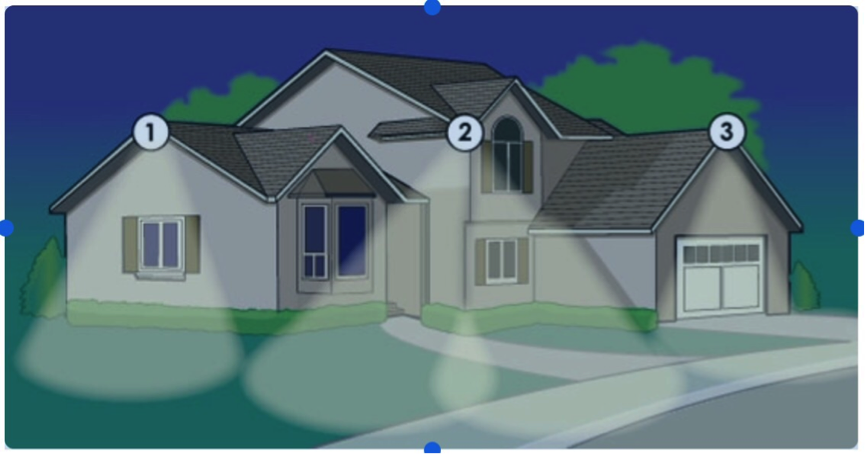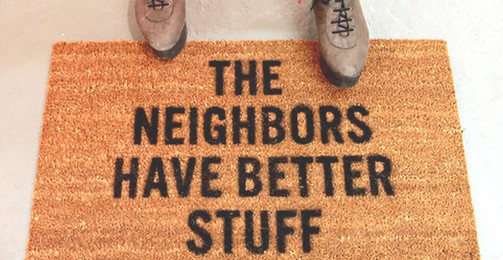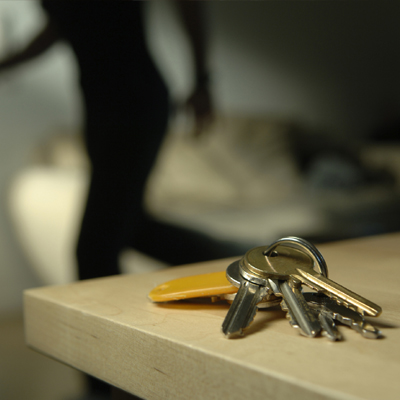
Many homeowners opt to add security lighting to their home as an additional deterrent to burglars, but how effective are they and which of the many different types should you consider?
While the effectiveness of security lighting in deterring thieves is limited, it is reasonable to assume that some intruders could be put off by it. The risk of being spotted by an occupier or neighbour while attempting to break and enter is likely to make some opportunists think twice.
Keep in mind that adding security lighting to a potential entry-point might be more helpful to the criminal than it is to the people and property it aims to protect. Having trouble seeing a way in? Don’t worry Mr Burglar, here, let me light the way for you!
That said, carefully placed motion sensor lights, with the right functions and features, may be a useful first-line defence and a good accompaniment to your home security. Here are some things to consider:
Motion-sensor lighting
There are different types of motion-sensing lights on the market and each has its own advantages and disadvantages. There are three types to look out for, passive motion sensors, active motion sensors and dual technology sensors.
Passive motion sensors
A passive motion sensor will only detect body heat.
Active motion sensors
An active motion sensor detects any type of movement, from an intruder to a bag blowing in the wind.
Since most of us are not too worried about a security threat from a paper bag and don’t want a light that will trigger so indiscriminately, most people prefer the passive motion sensor lighting systems.
Dual technology motion sensors
In addition to passive and active motion sensors, there is the ‘dual technology’ version. This type will only trigger if it detects both motion and body heat and so reduces the number of false-alarms. However, since these systems will only switch on the lights if both triggers are detected, they could be more vulnerable. If an intruder is able to trick either the passive or active detectors, there will be no lighting at all.
Other features – Detection zone
This refers to the width of the area that the motion-sensor can cover. Some even offer 360-degree coverage, but this may not be necessary for the outdoor areas you would like covered. Some systems even offer an adjustable detection range which can be useful if you choose to move the system to a new location later.
Range
While the detection zone refers to the width of coverage offered, the range refers to the distance, for properties which are close to a road, you will not want a system that detects every passer-by. Properties which are spread across a larger area with outhouses to protect could benefit from a longer range system.
Brightness
Some motion sensor lights are not necessarily designed with security in mind, they tend to have a lower brightness with the aim of simply lighting steps or hazardous areas. For a security system, it is best to opt for at least 300 Watts as a more effective deterrent.
Conclusion
If protecting your home is your top priority then lights alone might not be enough to deter burglars. You’re better off focusing on the basics of home security before investing in fancy motion sensor lighting. Common sense things like locking doors and windows and having some type of home security system should be considered first. In combination, sensor lights can be a helpful ‘nice to have’ addition.










